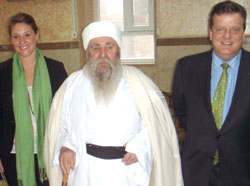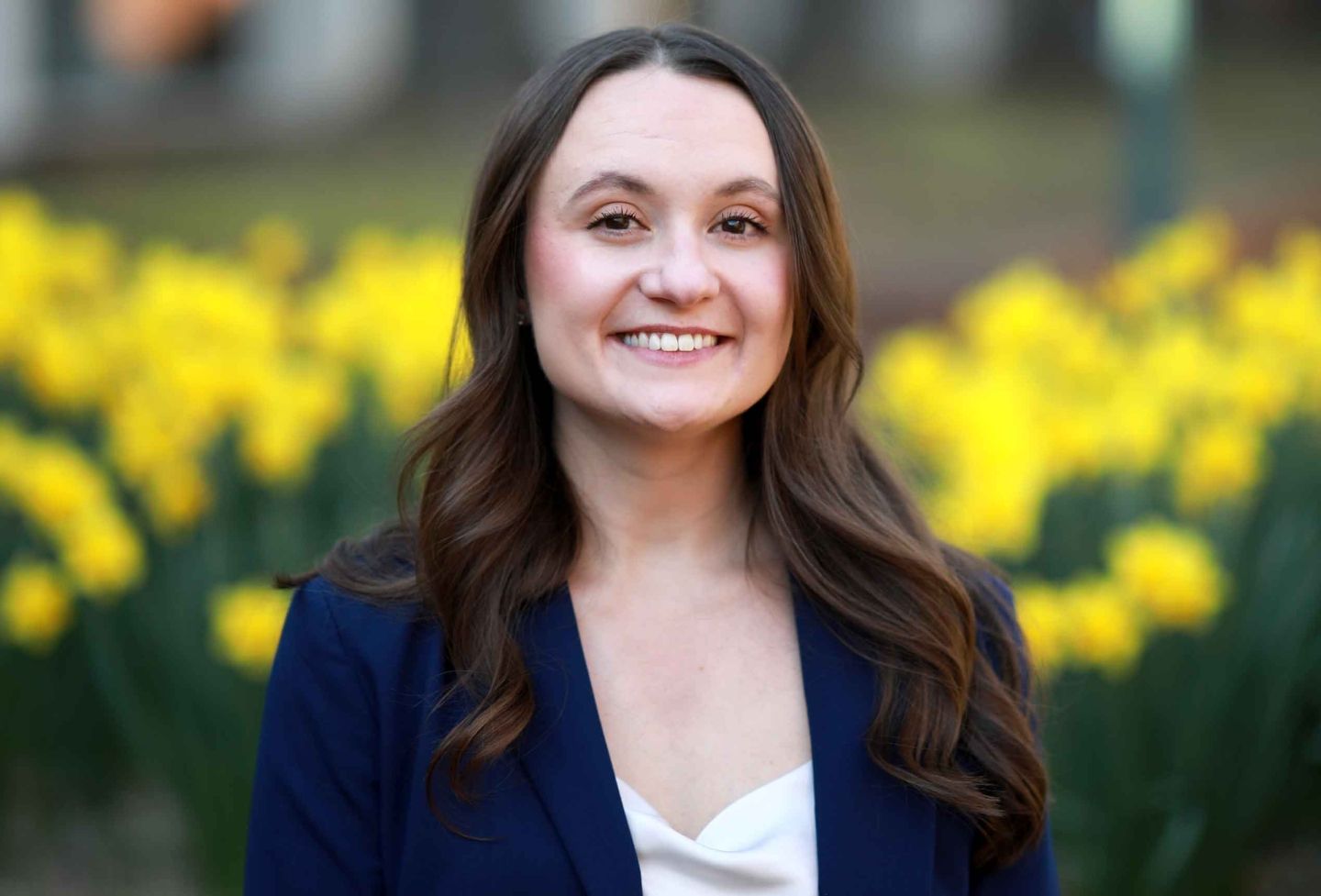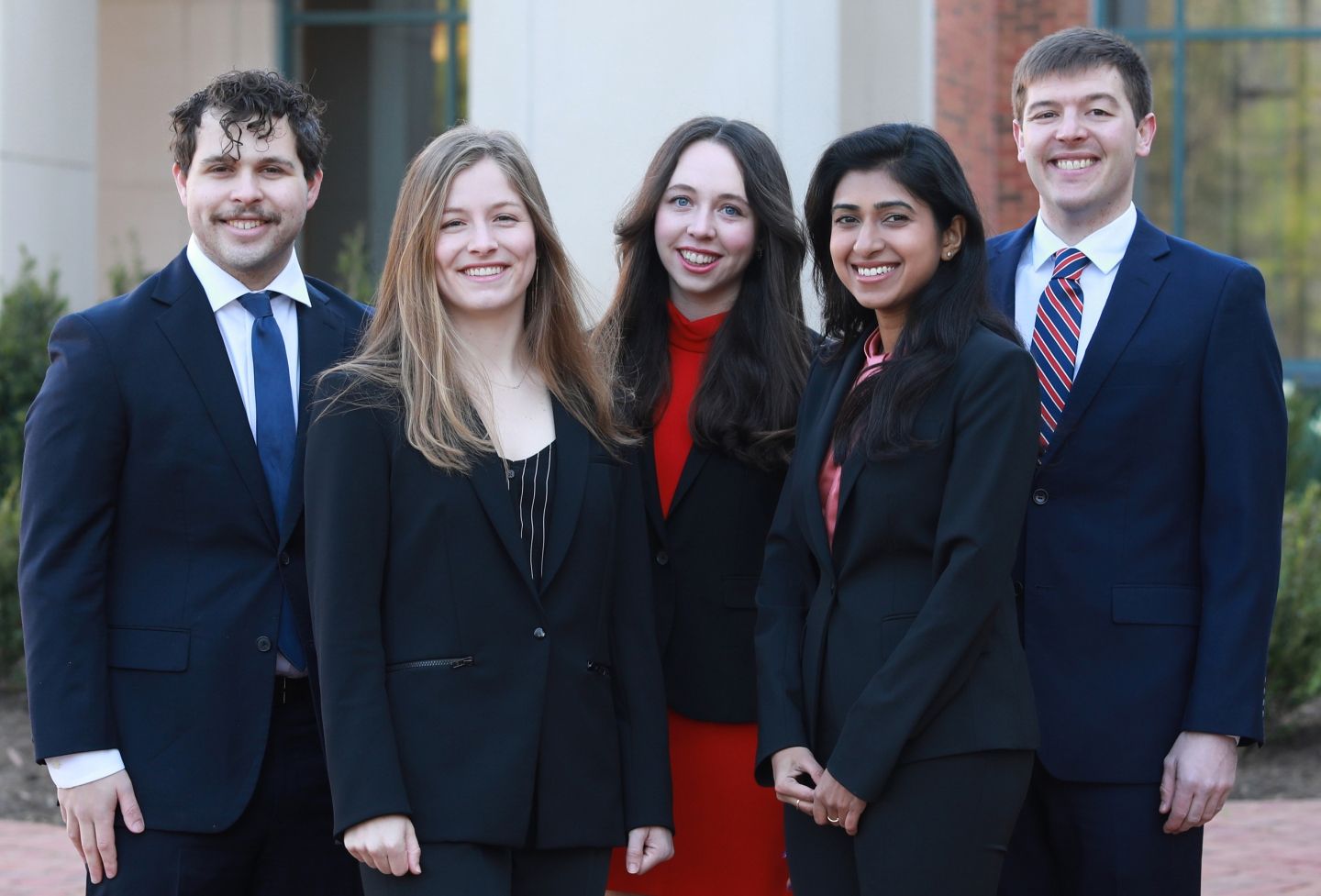International Human Rights Clinic Students Research Women's Rights in Iraq
Students in the International Human Rights Clinic recently helped develop an extensive report examining Iraqi law and how it relates to women's rights.

The report, "Women and the Law in Iraq," was released at an international conference in January in Irbil, Iraq. The clinic students worked with the Institute of International Law and Human Rights on the report, which was written in conjunction with Al Amal, an Iraqi women's rights organization.
While the report offers some recommendations, it is more of a legal reference, said Erin Houlihan '11, a clinic student.
"It's not meant to be an overarching record of what Iraqis should do," Houlihan said. "It's meant to point out how decades-old Iraqi law compares to other countries in the region. We're hoping it will be a tool and a talking point for reform."
IILHR Director William Spencer said the book will provide a platform for future advocacy efforts.
One Iraqi member of parliament said this is the road map for what we're going to be doing in parliament," Spencer said. Here is a place you can jump off from and implement and change what your country is all about as far as women."
Clinic director Deena Hurwitz said that the report would build a "rights-respecting social and political framework for Iraq."
In October and December, Spencer and Houlihan met with Iraqi judges, lawyers, and current and former members of Iraq's parliament to discuss the state of Iraqi law as it relates to women. A Harvard fellow working at IILHR, Jennifer MacLeod, gathered current Iraqi law, and members of the clinic and other nongovernmental organizations parsed out relevant sections for analysis and translation.
Clinic student Nathaniel Prum '12 worked as a translator on the project. A graduate in Middle Eastern studies from the University of Virginia, Prum is fluent in Arabic. His work mainly focused on the Iraqi penal code, much of which is based on Egyptian law written in the 1950s.
In the regional spectrum, Iraq has been a relatively progressive state," Prum said. In the Baathist regimes, there were women in some positions of power. You wouldn't see that in Saudi Arabia. You wouldn't see that in Iran."
But, Prum said, there are still issues of selective enforcement of laws, legally sanctioned domestic violence, laws that prosecute prostitutes but not clients, and a system that sometimes turns a blind eye to honor-killings, when someone is killed by their family or social group in for some perceived dishonor. Broader gender equality issues exist as well, such as impediments to a woman's right to sign contracts or to apply for a passport for her children.

Thirty years ago [Iraq] was, for women, not a bad place to be at all — a lot of equality and opportunity," Houlihan said. It's definitely backslid for a variety of reasons."
Houlihan and Prum said the long-term relationship established by the IILHR with Iraqi NGOs such as Al Amal was critical to the project's success. When writing the book, we sought collaboration and comments from Iraqi partners, and the commentary we received was overwhelmingly positive," Houlihan said.
"The IILHR is working hand in hand with Iraqi NGOs," Prum said. They have an office in Baghdad. Many of their staff members are Iraqis. They are very plugged in."
"We're not saying 'take this out' or 'put this in,'" Prum said. "It's all on the Iraqis. They've got the information, and now they can lobby and chart their course themselves."
"Spencer praised the clinic's efforts. The HR clinic provided the foundation for all of it," he said. "We're huge fans."
"Upon graduation, Houlihan plans to continue working in the area of human rights. I'm particularly interested in conflict zones and transitional states," she said.
Prum is grateful for the opportunity provided by the clinic project. "It was a great experience to be a small part of something that's a lot bigger than yourself and that will hopefully change a place that we've been watching from our couches for the last decade."
The report was released Jan. 27 at "The Role of Women in Peacebuilding, Reconciliation, and Accountability in Iraq," a conference hosted by No Peace without Justice, the Westminster Foundation for Democracy, Foundation for the Future, the International Alliance for Justice, the Kurdish Regional Government, and the Iraqi Government.
The IILHR is a nonprofit human rights NGO with offices in Washington, D.C., Brussels and Baghdad.
Founded in 1819, the University of Virginia School of Law is the second-oldest continuously operating law school in the nation. Consistently ranked among the top law schools, Virginia is a world-renowned training ground for distinguished lawyers and public servants, instilling in them a commitment to leadership, integrity and community service.


